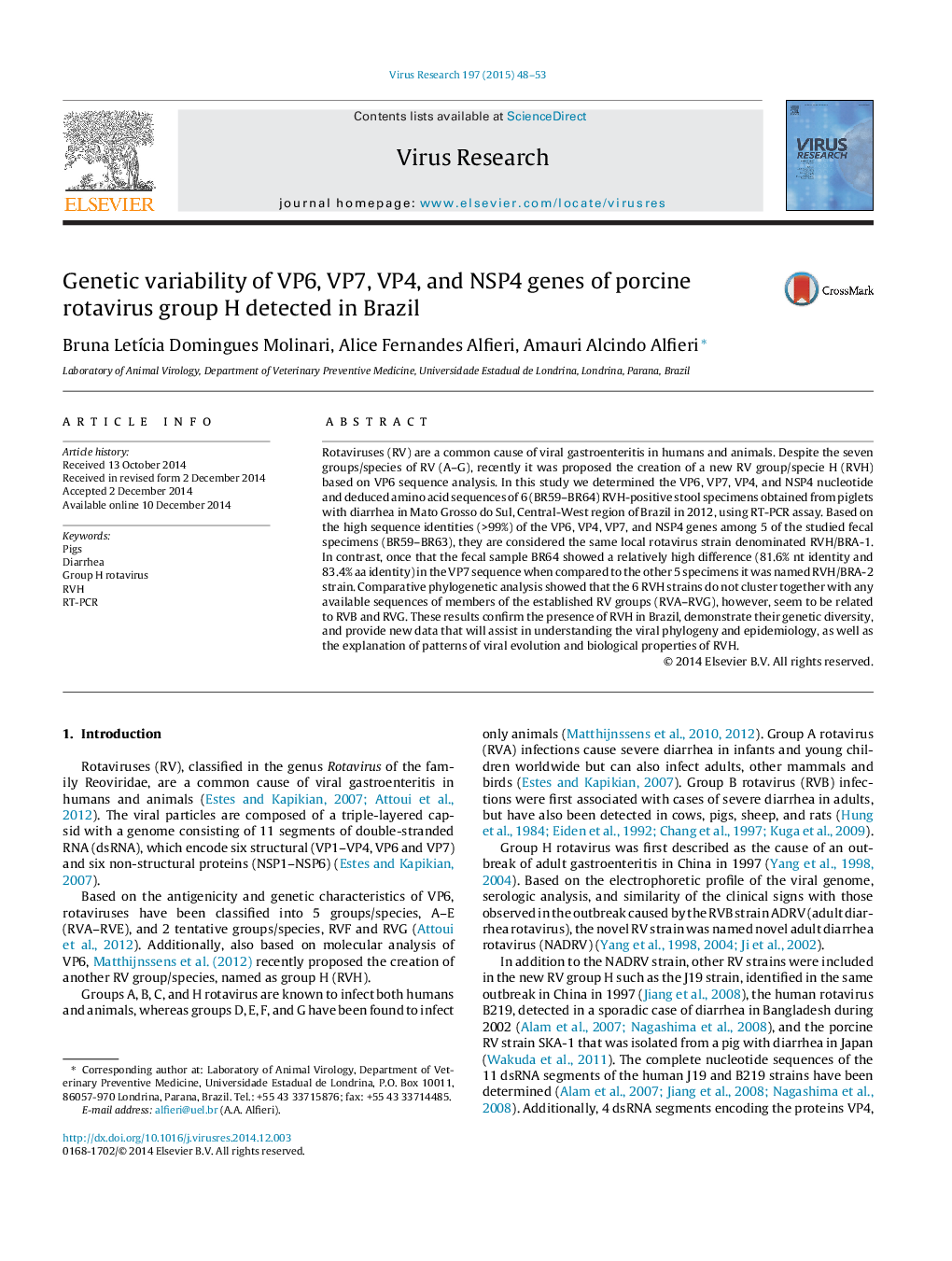| Article ID | Journal | Published Year | Pages | File Type |
|---|---|---|---|---|
| 3428298 | Virus Research | 2015 | 6 Pages |
•Detection of RVH in 9 Brazilian porcine stool samples.•Molecular characterization of VP6, VP7, VP4, and NSP4 genes of 6 RVH samples.•Classification of the 6 RVH-positive samples in 2 strains: RVH/BRA-1 and RVH/BRA-2.•Description of the Brazilian porcine RVH strains genetic diversity.•Discussion of the similarity among RVH, RVB, and RVG.
Rotaviruses (RV) are a common cause of viral gastroenteritis in humans and animals. Despite the seven groups/species of RV (A–G), recently it was proposed the creation of a new RV group/specie H (RVH) based on VP6 sequence analysis. In this study we determined the VP6, VP7, VP4, and NSP4 nucleotide and deduced amino acid sequences of 6 (BR59–BR64) RVH-positive stool specimens obtained from piglets with diarrhea in Mato Grosso do Sul, Central-West region of Brazil in 2012, using RT-PCR assay. Based on the high sequence identities (>99%) of the VP6, VP4, VP7, and NSP4 genes among 5 of the studied fecal specimens (BR59–BR63), they are considered the same local rotavirus strain denominated RVH/BRA-1. In contrast, once that the fecal sample BR64 showed a relatively high difference (81.6% nt identity and 83.4% aa identity) in the VP7 sequence when compared to the other 5 specimens it was named RVH/BRA-2 strain. Comparative phylogenetic analysis showed that the 6 RVH strains do not cluster together with any available sequences of members of the established RV groups (RVA–RVG), however, seem to be related to RVB and RVG. These results confirm the presence of RVH in Brazil, demonstrate their genetic diversity, and provide new data that will assist in understanding the viral phylogeny and epidemiology, as well as the explanation of patterns of viral evolution and biological properties of RVH.
